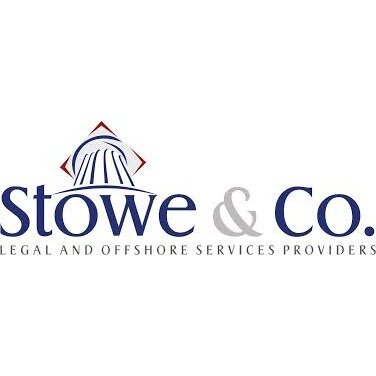Best Restructuring & Insolvency Lawyers in Dominica
Share your needs with us, get contacted by law firms.
Free. Takes 2 min.
Or refine your search by selecting a city:
List of the best lawyers in Dominica
About Restructuring & Insolvency Law in Dominica
Restructuring and insolvency law in Dominica addresses the challenges faced by individuals, companies, or other legal entities unable to meet their financial obligations. These laws are designed to offer mechanisms for fair debt resolution, protect the interests of creditors, and, where possible, provide an opportunity for viable businesses to reorganize and continue operations. In Dominica, the legal landscape governing restructuring and insolvency proceedings is shaped by a mix of statutes, regulations, and established court procedures. For both debtors and creditors, understanding the legal framework is vital to navigating financial distress responsibly and efficiently.
Why You May Need a Lawyer
Legal issues arising from financial distress can be complex and time-sensitive. Here are common situations where individuals or businesses may need the assistance of a restructuring and insolvency lawyer in Dominica:
- When a business cannot pay its debts on time and seeks protection from creditors.
- If an individual or company wishes to propose a plan to restructure debts and operations rather than face liquidation.
- When creditors want to protect or recover their funds from an insolvent debtor.
- If there is a threat or initiation of bankruptcy, receivership, or liquidation proceedings.
- To review or negotiate settlements with creditors outside court processes.
- When directors or shareholders have concerns about personal liability during insolvency.
- In cases involving cross-border insolvency, asset recovery, or enforcement of foreign insolvency judgments.
- To identify and address suspected cases of fraud or wrongful trading in the context of insolvency.
A lawyer with experience in Dominica's restructuring and insolvency laws is essential for developing effective strategies, protecting legal rights, and ensuring compliance with procedural requirements.
Local Laws Overview
Dominica’s restructuring and insolvency framework is largely influenced by the Insolvency Act, which establishes processes for bankruptcy, company liquidation, and corporate reorganization. Key points include:
- The Act sets out procedures for voluntary liquidation by companies and involuntary liquidation through court orders.
- There are provisions for receivership, where assets are managed and distributed under court supervision to pay off debts.
- The law recognizes rehabilitation and restructuring as alternatives to outright liquidation, allowing debtors to present proposals to creditors regarding payment plans or operational restructuring.
- The appointment of insolvency practitioners, such as trustees, liquidators, or receivers, is regulated to ensure fair and competent administration of insolvent estates.
- Certain transactions carried out before insolvency, such as preferences or undervalued transfers, may be challenged and reversed to protect creditor interests.
- The law outlines the rights of secured and unsecured creditors and sets the order of priority for debt repayment.
- There are obligations on directors and officers to act prudently and transparently when insolvency is likely or ongoing, to avoid personal liability.
- Cross-border insolvency provisions may apply if the insolvent party has assets or operations outside Dominica.
Frequently Asked Questions
What is insolvency in Dominica?
Insolvency refers to a legal state where an individual or entity is unable to meet its financial obligations as they become due. There are specific rules for determining insolvency under Dominica’s laws, and different procedures apply for individuals and companies.
What are the main types of insolvency proceedings in Dominica?
The main types include voluntary liquidation (where a company chooses to wind up its affairs), receivership (appointment of a receiver for asset management), bankruptcy (for individuals), and court-ordered liquidation (compulsory winding up).
Can a business avoid liquidation through restructuring?
Yes, businesses that are insolvent but have a reasonable prospect of recovery may propose a restructuring plan to their creditors. If accepted and approved by the court, this plan can help the business continue operations while paying creditors under new terms.
Who qualifies to be appointed as a trustee, receiver, or liquidator?
Only licensed and qualified insolvency practitioners or professionals approved under Dominica’s laws can be appointed to these roles. Their involvement ensures that the process is fair, transparent, and in accordance with legal requirements.
What rights do creditors have in insolvency proceedings?
Creditors have the right to be notified, file claims, attend meetings, vote on proposals, and receive distributions from available assets according to the order of priority established by law.
How can preferential or fraudulent transactions be challenged?
Transactions entered into shortly before insolvency, such as preferential payments to certain creditors or transfers at undervalue, can be reviewed and possibly set aside by the court if they are found to disadvantage other creditors.
Are directors or owners personally liable for company debts?
Generally, company debts are separate from personal assets. However, directors or owners may face personal liability if found guilty of wrongful or fraudulent trading, or if they breach certain duties during insolvency.
What steps should be taken if bankruptcy or liquidation seems likely?
Seek prompt legal advice to understand your options, gather financial records, assess assets and liabilities, communicate with creditors, and avoid actions that could worsen the situation or lead to legal consequences.
Can foreign creditors participate in Dominica insolvency proceedings?
Yes, foreign creditors can submit claims and participate in proceedings if the debtor’s assets or the bankruptcy process involve the courts in Dominica. Cross-border insolvency provisions provide guidelines for such situations.
How long do insolvency or liquidation proceedings usually take?
The duration varies depending on the complexity, size, and cooperation from involved parties. Simple liquidations may take a few months, while complex cases involving litigation or asset recovery can last for several years.
Additional Resources
If you require further assistance or information, the following resources might be helpful:
- High Court of Justice (Dominica) - Handles insolvency, bankruptcy, and liquidation cases.
- Companies and Intellectual Property Office (CIPO) - Provides company records and information relevant to restructuring or liquidation.
- Eastern Caribbean Supreme Court - Appellate jurisdiction for complex or disputed insolvency matters.
- Ministry of Justice, Immigration, and National Security - Oversees policy and legal updates for financial and insolvency law.
- Licensed insolvency practitioners, accountants, and legal professionals specializing in corporate and commercial law.
Next Steps
If you are facing financial distress, believe that insolvency proceedings may become necessary, or have been contacted regarding a restructuring, it is crucial to take immediate action. Start by gathering all relevant financial documents and details about your situation. Contact a qualified lawyer or licensed insolvency practitioner in Dominica as soon as possible to discuss your options and obligations. Early advice can help you understand the procedures, mitigate risks, and develop the best path forward. Consider seeking guidance from local courts or regulatory bodies if you have questions or need official forms. Taking timely and informed steps is key to achieving the most favorable outcome in restructuring and insolvency matters.
Lawzana helps you find the best lawyers and law firms in Dominica through a curated and pre-screened list of qualified legal professionals. Our platform offers rankings and detailed profiles of attorneys and law firms, allowing you to compare based on practice areas, including Restructuring & Insolvency, experience, and client feedback.
Each profile includes a description of the firm's areas of practice, client reviews, team members and partners, year of establishment, spoken languages, office locations, contact information, social media presence, and any published articles or resources. Most firms on our platform speak English and are experienced in both local and international legal matters.
Get a quote from top-rated law firms in Dominica — quickly, securely, and without unnecessary hassle.
Disclaimer:
The information provided on this page is for general informational purposes only and does not constitute legal advice. While we strive to ensure the accuracy and relevance of the content, legal information may change over time, and interpretations of the law can vary. You should always consult with a qualified legal professional for advice specific to your situation.
We disclaim all liability for actions taken or not taken based on the content of this page. If you believe any information is incorrect or outdated, please contact us, and we will review and update it where appropriate.
Browse restructuring & insolvency law firms by city in Dominica
Refine your search by selecting a city.











